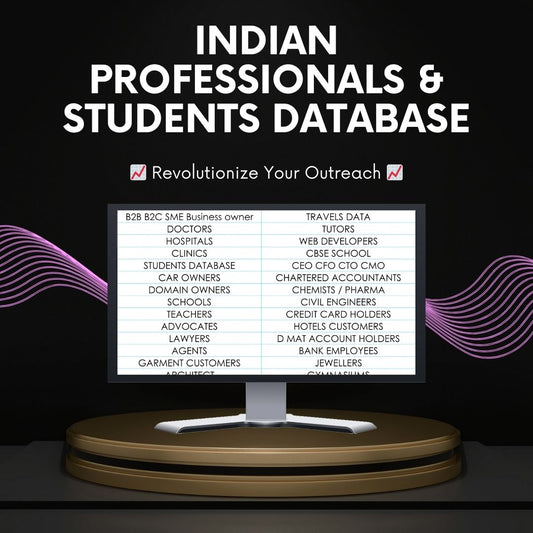புரோகிராமாடிக் எஸ்சிஓவைப் புரிந்துகொள்வது: ஒரு விரிவான வழிகாட்டி
பகிர்
நிரலாக்க எஸ்சிஓ என்பது ஒரு சக்திவாய்ந்த முறையாகும், இது டிஜிட்டல் சந்தைப்படுத்துபவர்கள் அதிக எண்ணிக்கையிலான உகந்த இணையப் பக்கங்களை விரைவாகவும் திறமையாகவும் உருவாக்க அனுமதிக்கிறது. இந்த அணுகுமுறை பாரம்பரிய SEO இலிருந்து கணிசமாக வேறுபடுகிறது, மேலும் அதன் நுணுக்கங்களைப் புரிந்துகொள்வது வணிகங்கள் தங்கள் வலைத்தளங்களுக்கு கணிசமான போக்குவரத்தை இயக்க உதவும். இந்த வலைப்பதிவு இடுகையில், நிரலாக்க எஸ்சிஓ என்றால் என்ன, அது எவ்வாறு செயல்படுகிறது, அதன் நன்மைகள் மற்றும் அதை செயல்படுத்துவதற்கான நடைமுறை எடுத்துக்காட்டுகள் ஆகியவற்றை ஆழமாக ஆராய்வோம்.
புரோகிராமாடிக் எஸ்சிஓ என்றால் என்ன?
புரோகிராமடிக் எஸ்சிஓ என்பது ஒரே நேரத்தில் பல முக்கிய வார்த்தைகளை இலக்காகக் கொண்டு இணையப் பக்கங்களை தானாக உருவாக்குவதைக் குறிக்கிறது. ஒவ்வொரு பக்கத்தையும் கைமுறையாக உருவாக்காமல் ஒரு பெரிய அளவிலான தேடல் சொற்களுக்கு தரவரிசைப்படுத்துவதை நோக்கமாகக் கொண்ட வலைத்தளங்களுக்கு இந்த முறை மிகவும் பயனுள்ளதாக இருக்கும். ஆட்டோமேஷன் விரைவான அளவிடுதலை அனுமதிக்கிறது, குறிப்பிட்ட முக்கிய வார்த்தைகளுக்கு ஏற்ப நூற்றுக்கணக்கான அல்லது ஆயிரக்கணக்கான பக்கங்களை உருவாக்குவதை சாத்தியமாக்குகிறது.
பாரம்பரிய எஸ்சிஓ மற்றும் நிரல் எஸ்சிஓ இடையே வேறுபாடுகள்
பாரம்பரிய எஸ்சிஓ மற்றும் நிரல் எஸ்சிஓ ஆகியவற்றுக்கு இடையேயான அடிப்படை வேறுபாடுகள் பின்வருமாறு சுருக்கமாகக் கூறலாம்:
- பக்க உருவாக்கம்: பாரம்பரிய எஸ்சிஓ என்பது தனிப்பட்ட பக்கங்களை கைமுறையாக உருவாக்குவதை உள்ளடக்குகிறது. இதற்கு நேர்மாறாக, நிரலாக்க எஸ்சிஓ இந்த செயல்முறையை தானியங்குபடுத்துகிறது, இது டெம்ப்ளேட்களின் அடிப்படையில் பல பக்கங்களை விரைவாக உருவாக்க அனுமதிக்கிறது.
- முக்கிய வார்த்தை இலக்கு: பாரம்பரிய எஸ்சிஓ ஒரு சில உயர்-போக்குவரத்து முக்கிய வார்த்தைகளை மேம்படுத்துவதில் கவனம் செலுத்துகிறது, புரோகிராமடிக் எஸ்சிஓ பரந்த அளவிலான நீண்ட-வால் முக்கிய வார்த்தைகளை குறிவைக்கிறது, பெரும்பாலும் குறைந்த போட்டியுடன்.
- தொழில்நுட்ப அறிவு: நிரலாக்க எஸ்சிஓவை நடைமுறைப்படுத்துவதற்கு, தரவுத்தள மேலாண்மை மற்றும் ஆட்டோமேஷன் கருவிகள் உள்ளிட்ட தொழில்நுட்ப அம்சங்களைப் பற்றிய திடமான புரிதல் தேவைப்படுகிறது, இது பாரம்பரிய எஸ்சிஓவிற்கு முக்கியமானதாக இருக்காது.
புரோகிராமாடிக் எஸ்சிஓ எப்படி வேலை செய்கிறது?
நிரலாக்க எஸ்சிஓவை செயல்படுத்தும் செயல்முறையானது திறமையான மற்றும் பயனுள்ள பக்க உருவாக்கத்தை உறுதி செய்யும் பல முக்கிய படிகளை உள்ளடக்கியது:
1. இலக்கு முக்கிய வார்த்தைகளை அடையாளம் காணவும்
முதல் படி, நிரலாக்க எஸ்சிஓ மூலம் திறம்பட இலக்காகக் கூடிய முக்கிய வார்த்தைகளைக் கண்டறிவது. எடுத்துக்காட்டாக, வெவ்வேறு நகரங்களில் அஞ்சல் குறியீடுகளுக்கான பக்கங்களை உருவாக்க விரும்பினால், "லக்னோவின் அஞ்சல் குறியீடு", "டெல்லியின் அஞ்சல் குறியீடு" போன்ற முக்கிய வார்த்தைகளை நீங்கள் அடையாளம் காணலாம். இந்த முக்கிய வார்த்தைகள் பெரும்பாலும் அதிக தேடல் தொகுதிகளைக் கொண்டுள்ளன, அவை போக்குவரத்தை உருவாக்குவதற்கு ஏற்றதாக அமைகின்றன.
2. பக்க டெம்ப்ளேட்களை உருவாக்கவும்
முக்கிய வார்த்தைகளை அடையாளம் கண்ட பிறகு, பக்கங்களுக்கான டெம்ப்ளேட்களை வடிவமைப்பது அடுத்த படியாகும். இந்த வார்ப்புருக்கள் ஒவ்வொரு பக்கத்திலும் தகவல் எவ்வாறு வழங்கப்படுகின்றன என்பதை ஆணையிடும். உதாரணமாக, அஞ்சல் குறியீடுகளுக்கான டெம்ப்ளேட்டில் ஒரு தலைப்பு, அஞ்சல் குறியீட்டின் விளக்கம் மற்றும் வரைபடம் ஆகியவை இருக்கலாம். உருவாக்கப்படும் ஒவ்வொரு பக்கமும் இந்த டெம்ப்ளேட்டைப் பயன்படுத்தும் ஆனால் இலக்கிடப்பட்ட முக்கிய வார்த்தையின் அடிப்படையில் வெவ்வேறு தரவுகளுடன் நிரப்பப்படும்.
3. தரவுத்தளத்தை உருவாக்கவும்
நிரல் சார்ந்த எஸ்சிஓவின் முக்கியமான அங்கம், பக்கங்களுக்குத் தேவையான தகவல்களைச் சேமிக்கும் தரவுத்தளமாகும். இந்த தரவுத்தளத்தை எக்செல் பயன்படுத்தி உருவாக்கலாம் அல்லது ஆன்லைனில் கிடைக்கும் பொது தரவுத்தொகுப்பில் இருந்து பெறலாம். எடுத்துக்காட்டாக, இந்த நோக்கத்திற்காக பயன்படுத்தக்கூடிய பல்வேறு தரவுத்தொகுப்புகளை Google வழங்குகிறது.
4. ஆட்டோமேஷன் கருவிகள்
பக்க டெம்ப்ளேட்களை தரவுத்தளத்துடன் இணைக்க, ஆட்டோமேஷன் கருவிகள் அவசியம். இந்த கருவிகள், தரவுத்தளத்தில் உள்ள தரவை டெம்ப்ளேட்களுடன் இணைத்து உண்மையான வலைப்பக்கங்களை உருவாக்கும் செயல்முறையை எளிதாக்குகிறது. எடுத்துக்காட்டாக, வேர்ட்பிரஸ்ஸுக்குக் கிடைக்கும் பல்வேறு செருகுநிரல்கள் இந்தப் பணியைத் தானியக்கமாக்கி, பயனர்கள் தங்கள் தரவுத்தொகுப்புகளைப் பதிவேற்றவும், ஒரே நேரத்தில் பல பக்கங்களை உருவாக்கவும் அனுமதிக்கிறது.
செயல்திட்ட SEO இன் எடுத்துக்காட்டுகள்
நிரலாக்க எஸ்சிஓவை நன்கு புரிந்து கொள்ள, இந்த உத்தியை வெற்றிகரமாக செயல்படுத்திய இணையதளங்களின் சில நிஜ உலக உதாரணங்களைப் பார்ப்போம்.
ஜாப்பியர்
நிரலாக்க எஸ்சிஓவை மேம்படுத்தும் வலைத்தளத்தின் பிரதான உதாரணம் ஜாப்பியர். மேம்பட்ட தேடல் ஆபரேட்டர் “site:zapier.com/apps/integrations” ஐப் பயன்படுத்துவதன் மூலம், அவர்கள் 370,000 பக்கங்களுக்கு மேல் உருவாக்கியிருப்பதைக் காணலாம். ஒவ்வொரு பக்கமும் வெவ்வேறு பயன்பாட்டு ஒருங்கிணைப்பை இலக்காகக் கொண்டுள்ளன, அவை அவற்றின் உள்ளடக்கத்தை திறம்பட அளவிட டெம்ப்ளேட்களை எவ்வாறு பயன்படுத்துகின்றன என்பதை நிரூபிக்கிறது.
சுற்றுலா மற்றும் தங்குமிட தளங்கள்
பல பயண இணையதளங்கள் குறிப்பிட்ட இடங்களுக்கான பக்கங்களை உருவாக்க புரோகிராமடிக் எஸ்சிஓவைப் பயன்படுத்துகின்றன. உதாரணமாக, ஒரு தளத்தில் "நியூயார்க் நகரில் உள்ள சிறந்த ஹோட்டல்கள்", "லாஸ் ஏஞ்சல்ஸில் உள்ள சிறந்த ஹோட்டல்கள்" மற்றும் பலவற்றிற்கான பக்கங்கள் இருக்கலாம். ஒவ்வொரு பக்கமும் ஒரே மாதிரியான கட்டமைப்பைப் பின்பற்றுகிறது, ஆனால் அந்தந்த இடத்திற்கு ஏற்ப வடிவமைக்கப்பட்டுள்ளது, இந்த தளங்கள் பல்வேறு தேடல்களுக்கு தரவரிசைப்படுத்துவதை எளிதாக்குகிறது.
ஈ-காமர்ஸ் தளங்கள்
ஈ-காமர்ஸ் வலைத்தளங்களும் நிரல் எஸ்சிஓ மூலம் பயனடையலாம். எடுத்துக்காட்டாக, காலணிகளை விற்கும் ஆன்லைன் ஸ்டோர் வெவ்வேறு பிராண்டுகள், பாணிகள் மற்றும் அளவுகளுக்கான பக்கங்களை ஒரே டெம்ப்ளேட்டைப் பயன்படுத்தி உருவாக்கலாம். நிலையான பயனர் அனுபவத்தைப் பேணுகையில், பல நீண்ட-வால் முக்கிய வார்த்தைகளை இலக்காகக் கொள்ள இது அவர்களை அனுமதிக்கிறது.
நிரல் எஸ்சிஓ நன்மைகள்
நிரலாக்க எஸ்சிஓவைப் பயன்படுத்துவதில் பல நன்மைகள் உள்ளன:
- அளவிடுதல்: முதன்மையான நன்மை விரைவாக அளவிடும் திறன் ஆகும். வணிகங்கள் குறுகிய காலத்தில் பல பக்கங்களை உருவாக்க முடியும், மேலும் அவை பரந்த அளவிலான முக்கிய வார்த்தைகளை குறிவைக்க அனுமதிக்கிறது.
- செயல்திறன்: தன்னியக்கமாக்கல் உள்ளடக்கத்தை உருவாக்க தேவையான நேரத்தையும் வளங்களையும் குறைக்கிறது, அணிகள் தங்கள் சந்தைப்படுத்தல் உத்திகளின் மற்ற முக்கிய அம்சங்களில் கவனம் செலுத்த உதவுகிறது.
- அதிகரித்த ட்ராஃபிக்: பெரிய முக்கிய வார்த்தைகளை குறிவைப்பதன் மூலம், தனிப்பட்ட முக்கிய வார்த்தைகள் குறைந்த தேடல் அளவுகளைக் கொண்டிருந்தாலும், இணையதளங்கள் அதிக போக்குவரத்தை ஈர்க்கும்.
- மேம்படுத்தப்பட்ட எஸ்சிஓ செயல்திறன்: புரோகிராமடிக் எஸ்சிஓ மூலம் உருவாக்கப்பட்ட பக்கங்கள் பல்வேறு தொடர்புடைய வினவல்களுக்கு தரவரிசைப்படுத்தலாம், இது இணையதளத்தின் ஒட்டுமொத்தத் தெரிவுநிலையை மேம்படுத்துகிறது.
நிரலாக்க எஸ்சிஓவின் சவால்கள்
நிரலாக்க எஸ்சிஓ பல நன்மைகளை வழங்கும் அதே வேளையில், இது அதன் சொந்த சவால்களுடன் வருகிறது:
- உள்ளடக்கத் தரம்: கவனமாக நிர்வகிக்கப்படாவிட்டால் மெல்லிய உள்ளடக்கத்தை உருவாக்கும் அபாயம் உள்ளது. தேடுபொறிகளில் இருந்து அபராதங்களைத் தவிர்க்க ஒவ்வொரு பக்கமும் மதிப்பை வழங்க வேண்டும்.
- தொழில்நுட்ப சிக்கலானது: நிரலாக்க எஸ்சிஓவை செயல்படுத்துவதற்கு தொழில்நுட்ப அறிவு தேவைப்படுகிறது, குறிப்பாக தரவுத்தளங்கள் மற்றும் ஆட்டோமேஷன் கருவிகளை நிர்வகிப்பதில்.
- நகல் உள்ளடக்கத்தின் ஆபத்து: சரியாகக் கையாளப்படாவிட்டால், நகல் உள்ளடக்கத்தை உருவாக்கும் ஆபத்து இருக்கலாம், இது எஸ்சிஓ செயல்திறனை எதிர்மறையாக பாதிக்கும்.
முடிவுரை
புரோகிராமடிக் எஸ்சிஓ என்பது ஒரு புதுமையான அணுகுமுறையாகும், இது ஒரு வலைத்தளத்தின் தேடுபொறி பார்வை மற்றும் போக்குவரத்தை கணிசமாக மேம்படுத்தும். அதன் கொள்கைகளைப் புரிந்துகொண்டு அதன் உத்திகளை திறம்பட செயல்படுத்துவதன் மூலம், வணிகங்கள் வலுவான ஆன்லைன் இருப்பை உருவாக்க முடியும். தேடுபொறிகள் தொடர்ந்து உருவாகி வருவதால், டிஜிட்டல் மார்க்கெட்டிங் உத்திகளில் நிரல் சார்ந்த எஸ்சிஓ பெருகிய முறையில் முக்கிய பங்கு வகிக்கும்.
இந்த அணுகுமுறையைப் பரிசீலிப்பவர்களுக்கு, புரோகிராமடிக் எஸ்சிஓவின் முழுப் பலன்களையும் பெற, தரமான உள்ளடக்க உருவாக்கத்துடன் ஆட்டோமேஷனை சமநிலைப்படுத்துவது அவசியம்.



